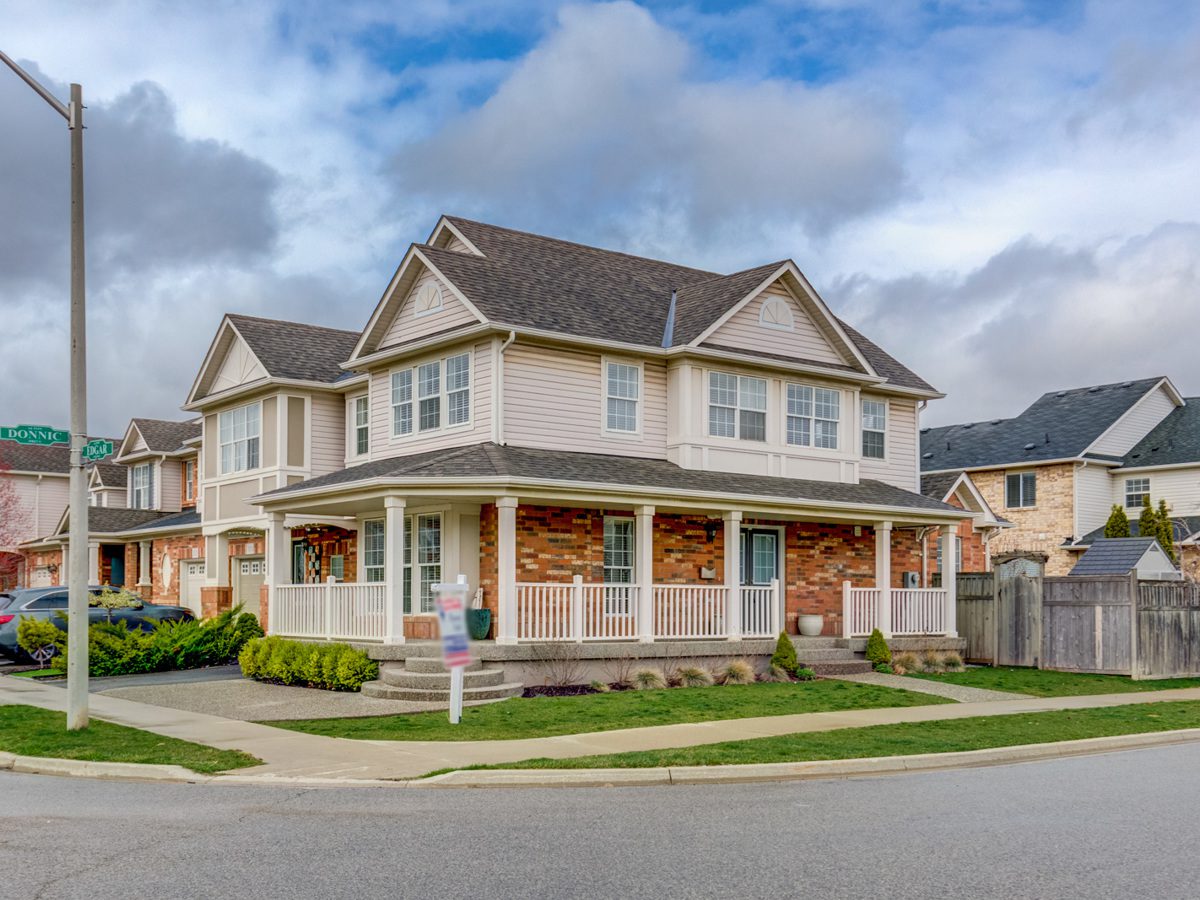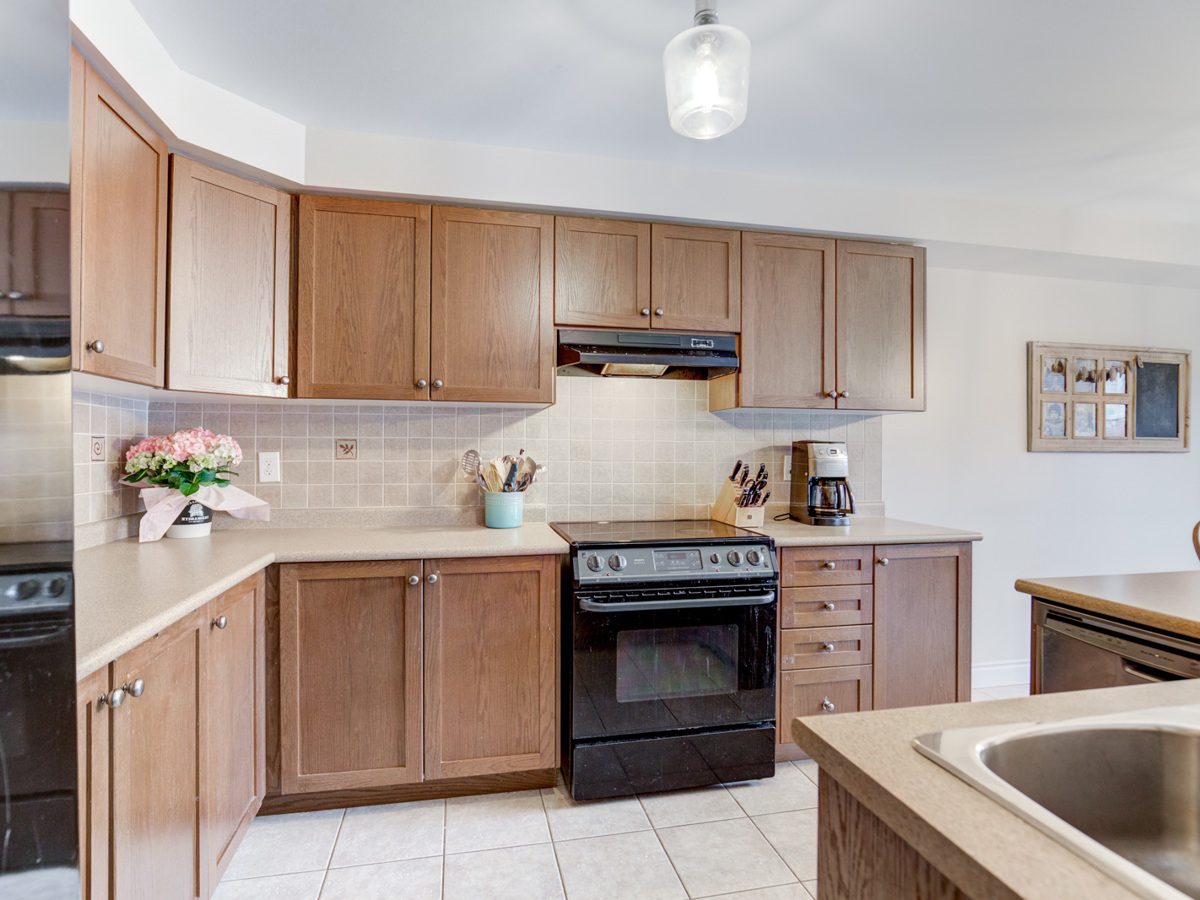December 16, 2022 | Buying
How to Tell if the Time is Right to Move Up

Have you been yearning for a little extra space around the house lately? No matter how much you love your home, it’s completely normal to want a change or to upgrade at some point. For many people, the decision to upsize goes hand in hand with a significant life change. A new family member on the way or a big promotion with a pay raise can be the motivation. Others are driven by something internally. The idea of a change in scenery just feels right. The only question now is whether the timing is on your side.
The intense market conditions of the past two years caused many people to put their plans on hold. However, for existing homeowners with some equity behind them, now is an excellent time to act on your dreams. Here are just a few reasons why.
Want to stay up to date with the GTA real estate market? Subscribe here to get the latest stats and exciting new listings delivered straight to your inbox.
Prices Are Down–For Now
During the housing boom we saw in 2021 and early 2022, it seemed like the upward climb of prices would never end. A house that was affordable one month would skyrocket in price and be out of reach the next.
However, once the Bank of Canada began to raise interest rates, the real estate market cooled. As of November 2022, the average price of a house in the GTA is down more than 7%. Competition from other buyers is also down, which means you no longer have to worry about bidding wars driving up the price.
Are you searching for your next home in the GTA? Learn more about my home-buying process right here.
How Falling Prices Affect Your Down Payment
Falling prices may sound like great news, but do rising interest rates negate them? Some people believe so. I believe that’s a bit of a near-sighted way of looking at affordability. When interest rates rise, your monthly installment may go up. However, there are options to keep your house affordable. For example, you can keep your payments the same, with less going toward the principal and more toward interest.
Keep in mind that interest rates change, but the value and equity you build by upgrading your home are permanent. And the real barrier to buying or upgrading a home for most people isn’t rising interest. It’s coming up with the funds needed for the down payment. In this case, falling prices are a game-changer.
Let’s take a look.
- If the house you’re considering is $1 million or more, you need a minimum of 20% upfront. Either it has to come out of the equity of your current home, or you have to have it in cash.
- A drop of 7% brings that million-dollar home down to $930,000. Now you need 5% on the first $500,000 and 10% on the remaining amount. This works out to $$68,000, a substantial decrease from the $200,000 you would have needed before the price drop.
Even if your monthly payment is higher because of interest rates, a smaller down payment makes upgrading your home far more affordable than when prices peaked.
Are you still wondering how interest rates might affect you? You will find a more detailed breakdown right here.
Equity Gives Existing Homeowners a Significant Advantage
High inflation and rising interest rates make purchasing a home difficult for first-time buyers. But as an existing homeowner, you have the advantage of equity behind you, even with housing values down. How does this work?
Imagine you bought a house in Toronto just five years ago. In 2018, the average price hovered around $787,300. First-time buyers today can only dream of those prices! But as time went on, that house increased in value. In February 2022, average prices peaked at $1,334,544, almost double what you paid in 2018!
By November 2022, the average price of a Toronto house “fell” to $1,079,395, according to the last TRREB report. Many homeowners feel distressed when thinking how much they missed out on by not selling in February.
However, what really matters is the value of your house now, which is still worth $292,095 more than what you paid for it. That’s how much equity you have, which doesn’t even include the amount you’ve paid toward your mortgage. That return on your investment will go a long way toward upgrading your home, especially now that prices are down!
What should you expect when selling your home in the current market? Learn more right here.
Sellers Are Open to Negotiation
If you tried to negotiate on price or place a conditional offer in 2021 or early 2022, the seller would have rejected your offer outright. Back then, nearly every listing attracted multiple buyers. Competitive bidding wars meant placing unconditional offers far above the asking price provided your only hope of success.
Now that the market has changed, houses are taking longer to sell. For the first time in two years, sellers are open to concessions. A savvy real estate agent may be able to negotiate for a better price or terms. At the very least, you can place an offer with a condition of a home inspection to ensure your new house is all it seems.
Time May Be of the Essence
Those looking to purchase a home or upgrade have excellent options in the current market. But keep in mind that the high demand for housing never completely disappeared. Instead, many buyers delayed their plans.
With housing prices down, many people will decide to reenter the market, as evidenced by a slight increase in values from September to October. While no one can predict the future, the window of opportunity may be drawing to a close sooner than we realize.
Soon, it will be more than just people reentering the market creating more competition. The federal government has increased immigration targets to try to fill vacancies in the workforce.
These newcomers may provide a much-needed boost to our economy. However, they will also need housing, which could strain the already limited supply. The real estate market is a delicate balance, and any increase in demand could trigger another burst of activity.
If you’re ready to make your move, the time to act is now, while prices are still relatively low. Do you have questions about how to get started? Send me an email at damir@damirstrk.com or call 416.884.7925 for more information.

Get GTA Market Updates Delivered
Sign up to receive my newsletter here and get regular updates about local market changes, the latest listings, and more insider information.




